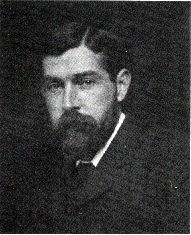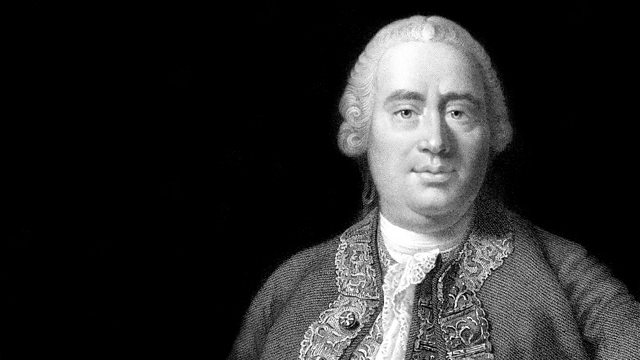A Level Religious Studies - Idiot's Guide to Naturalism
Idiot’s Guide to
Naturalism
Naturalism is the view that
1. Ethical
terms can be defined or explained using the same ‘natural’ terms we use in
maths and science
2. Morals
can be based on the same kind of observation of the world as used in science
3. All
ethical statements can be translated into non-ethical ones
Naturalists are absolutists. Morals are not about
opinions and points of view and are objectively
true. For example: ‘euthanasia is evil’ – they are expressing a moral
truth, not an opinion.
A person uses their senses and logic to conclude ethical truths.
Moral truths are facts like numbers. You can conclude something is wrong from observation and analysis. Moral facts
aren’t views or opinions, nor are they based on spiritual or intuitive sense.
When you observe something is wrong, it’s a moral fact of the universe.
Theological naturalists, like Thomas Aquinas, link goodness to
divine will and the kind of creatures God made humans to be. For them, adultery
is wrong as it limits or prevents human flourishing.
Hedonistic naturalists link goodness to pleasure or happiness: the
thing that causes happiness is right. Moral statements are justified by
something else.
F.H.
Bradley
 |
| F. H. Bradley |
Naturalism linked claims about
moral truth to the rise of modern science and the idea that truths about the
world we live in can be proved. He stated that our duty is universal and is
objective with real identity and that is realises the whole person, teaching us
to ‘identify others and ourselves with the station we fill; to consider that
ass good, by virtue of that to consider others and ourselves good too’. (Ethical Studies,1876)
Bradley says morals are
observable and that the social order and your position in that decides your
moral duties. The position is a structure of reality.
Is this correct?
Roles of men and women changed in
the twentieth century, hierarchical social roles came under pressure. The
concepts of class, fixed gender roles and institutions such as marriage
changed. Bradley’s fixed moral social order is therefore questionable.
Naturalism can maintain
absolutism if it labels the breakdowns (family breakdowns linked to social
order in Western society and marriage breakdown) as moral failures.
David Hume – Criticised it
 |
| David Hume |
Hume
said that all knowledge comes from our sense experiences (5 senses). We can
allow our imagination to make connections between cause and effect so if we see
something happen a lot, we imagine the cause will result in the same effect
later e.g. sunrise means sunset. Hume argued that moral claims are not derived
from reason, rather sentiment. He rejected the idea that moral good or evil can
be explained by reason. He suggests that morals produce or prevent actions, but
reason is impotent in matters of morality. Hume disagreed with Aquinas.
Hume’s Law
Hume saw that writers would move
from ‘is’ statements to ‘ought’ statements. A person tells a lie and the
philosophers say ‘you ought not to lie’. Hume’s
Law is that you cannot go from an ‘is’ to an ‘ought’. An example of this
would be that oranges are an excellent source of vitamin C which is good for
you (descriptive), therefore you ought to eat them as they will keep you
healthy (prescriptive).
Philippa Foot
 |
| Philippa Foot |
Philippa
Foot suggested that moral evil is ‘a kind of natural defect’. She argued that
when we call a person a ‘just man’ or ‘honest woman’ we are referring to
something, to a person who recognises certain things (promise keeping, helping
person) as things that are powerful reasons to act. A moral person has
qualities which are the reasons they carry out a certain action – this can be
observed. We know if someone cannot keep a promise.
Foot thinks that there are
virtues or behaviours that aim at some good – an idea from Aristotle. Key thing
is that she thinks these virtues can be observed by watching how a person acts
when thinking of them. Someone who acts with honesty in mind is honest, and the
honesty can be identified through observation. We can perceive the moral
absolutes that empiricists argue we cannot measure.
Foot uses Artistotle’s observation
that the natural world includes a good way of doing stuff. It offers patterns
of excellence and defect, related to function and purpose of living things.
These apply to morality:
1. There
is a life cycle consisting of self-maintenance and reproduction.
2. These
two things can be achieved differently in each species depending on how they
feed, develop and how they reproduce.
3. From
this, norms can be deduced e.g. swiftness of deer, night vision of owl.
4. Applying
these norms to individual members of the species means members can be judged to
be effective or not. An owl with poor night vision is a defective owl.
Foot says: ‘oaks need to have
deep sturdy roots: there is something wrong with them if they do not’.
J. L. Mackie
 |
| J. L. Mackie |
Mackie
was a philosopher who found difficulty with claims about absolute or natural
approaches to morality. In his book, Ethics:
Inventing Right and Wrong (1977), he says it is possible to describe an
institution from the outside e.g. social practice of promising or making chess
moves. The institution demands that promises are kept. However, we can make
observations from the inside. For example, ‘don’t break a promise John’, or
‘don’t move that rook as it will leave your king in check’. Mackie argued the injunction
to not break promises depends on the rules of the institution having already
being accepted.
The rules themselves are not
facts, they are accepted to varying degrees by all those in the institution.
The degree to which moral rules
can be applied depends on the relationship with the people affected e.g. more
inclined to keep promise to family than to strangers. Following rules of an
institution is not the same as acting logically in response to agreed facts. It
is acting according to social expectations; it is responding to an
understanding of the demands to be made and what will be approved of. Mackie
believes that moral rules can be observed but believes they are based on
tradition rather than being absolute constructs.
Strengths
·
Empirical with a scientific basis, so evidence
is available to everyone.
·
It is a simple
concept, for the reason that 'good' does not have to be defined (since we
already know it).
·
It prevents a solid
guideline that can be followed in every situation.
Weaknesses
·
Moore says that to define an ethical judgement
as a factual one is erroneous, but also that to define “goodness” as the
greatest pleasure or the most happiness propagates the naturalistic fallacy
because such definitions are not possible.
·
One cannot use a non-moral premise to establish
a moral conclusion — you cannot go from observing pleasure to saying that
goodness is pleasure, and likewise, a metaphysical premise like God cannot
bring about a moral conclusion. According to Moore, “everything is what it is
and not another thing”; the good is the good — not pleasure or happiness — and
it can’t be broken down into pleasure, happiness or some other description.
·
It is impossible to agree on the definition of
“good” and “evil”.
·
Laws cannot be enforced in communities, because
not everyone abides by the same definition of “good” and “bad”.
·
It is too simplistic
·
Doesn’t allow for moral dispute. If the majority
think something is good, the judgement cannot be wrong. Opinions might change
but it is still correct as the statement is an expression of differing
attitudes at a time.
·
Bradley’s suggestion that morals were a feature
of the concrete universe no longer carries much weight outside religious
groups. It doesn’t stand up to new science in quantum physics where traditional
approaches to the universe are challenged by things like the chaos theory.
·
Naturalistic fallacy
Ethical theories that link closely
The Naturalistic Fallacy (G.E. Moore)
·
We cannot identify goodness (ethical statement)
with a natural quality – statement about the world (non ethical statement).
·
To claim moral statements can be verified or
falsified = commit naturalistic fallacy
·
Cannot infer from a description of how the world
‘is’ to how the world ‘ought’ to be
·
‘Is’ are factual objective statements, ‘ought’
are ethical statements of value.
·
Cannot use facts to work out how we ought to
act.
Utilitarianism
An
example of a naturalistic ethical theory is John Stuart Mill’s version
of utilitarianism, according to which action is morally right to the
extent that it tends to produce happiness (or pleasure, broadly construed) and
morally wrong to the extent that it fails to produce happiness or tends to
produce unhappiness (or pain, broadly construed).

Comments
Post a Comment